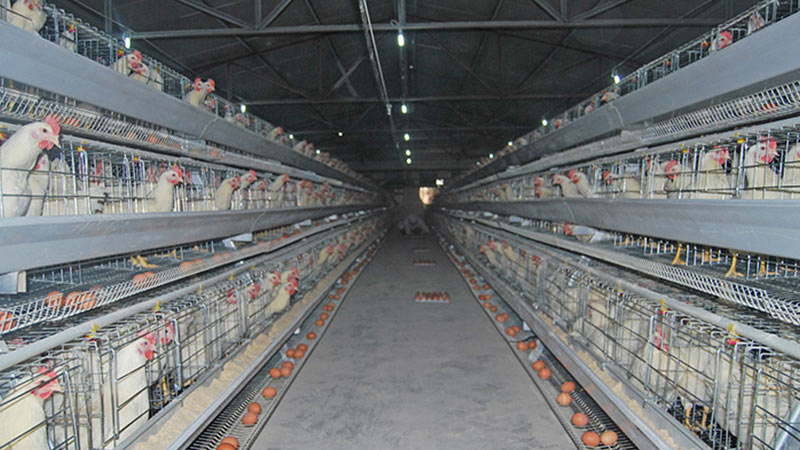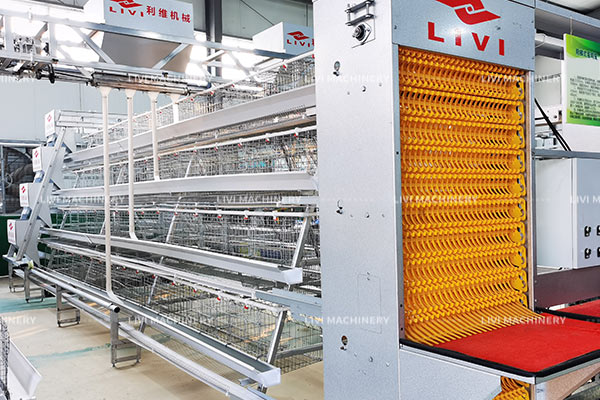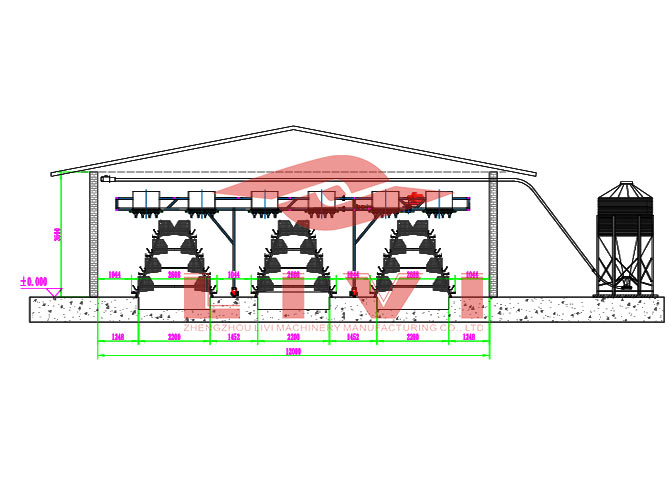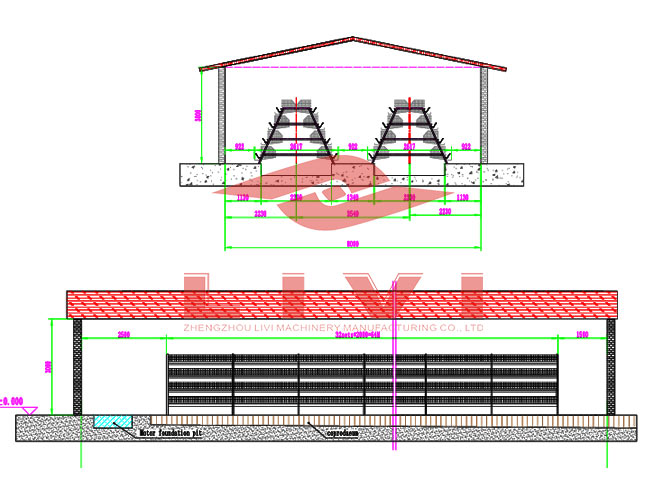A-Type 4-Tier Layer Cages for 25,000-Bird Poultry Farm in Malawi
Project Overview
In April 2025, Livi Machinery delivered a complete set of A-Type 4-Tier Layer Cages to a large-scale layer poultry farm in Malawi, supporting a flock of 25,600 laying hens. The project adopted a closed house design equipped with automated systems for feeding, manure cleaning, and egg collection, helping the farm achieve efficient and hygienic egg production.

Project Details
The poultry house was planned with a focus on maximizing stocking density and automation. According to the farm’s infrastructure and production goals, Livi provided:
- Chicken house size: 88m × 15m × 3.5m
- Cage model: A-Type 4-Tier Layer Cages, 160 birds per set
- Cage size: 195 × 45 × 41 cm
- Layout: 4 rows × 40 sets = 160 sets total
- Capacity: 160 birds × 160 sets = 25,600 layers
Equipment Supplied
To meet the customer’s production and labor-saving requirements, the following equipment was supplied:
- ✅ A-Type 4-Tier Layer Cages (hot-dip galvanized steel)
- ✅ Step-type automatic feeding machine
- ✅ Flat belt manure cleaning system (1 set per row)
- ✅ Egg collecting machine (1 set per row)
- ✅ Nipple drinking system with water tanks
This configuration was tailored for high-efficiency egg production in a fully enclosed shed under Malawi’s tropical climate.
Installation and Service
Livi Machinery provided:
- Custom layout and airflow planning
- Remote video support and installation guidance
- System operation training
- Quick after-sales service and parts supply
The entire system was installed within a short timeframe, and the customer successfully began production shortly after.
Customer Feedback
The customer shared highly positive feedback on:
- The strong and corrosion-resistant cage build
- Easy operation of the automatic feeding and cleaning systems
- Clean egg collection process
- Livi’s timely and professional technical support

Why Choose Livi’s A-Type 4-Tier Layer Cages?
Livi’s A-Type 4-Tier Layer Cages are ideal for medium to large commercial poultry farms seeking durability, high stocking capacity, and automation readiness. Combined with feeding, manure, and egg collection systems, these cages help farms increase output while minimizing labor costs.



